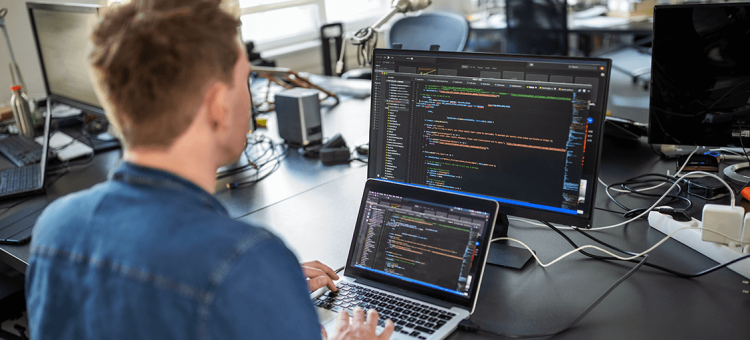Key findings:
- A quarter of workers (24%) are worried AI will make their job obsolete, with workers of color, younger workers, and lower-salaried workers more concerned
- By industry, about half of workers in Advertising & Marketing (51%) and Business Support and Logistics (46%) are worried AI will soon take their job – twice the level of concern overall
- A majority of workers (56%) say they are not comfortable with AI being used to assist HR with hiring, performance evaluations, and operations, though younger workers and workers of color are more open to AI being used by HR
- Workers increasingly report a benefit to working in-person: 56% of workers say in-person employees at their company will have better career opportunities, a new high
- No change in our Workforce Happiness index (72), or the underlying measures.
- 85% of workers are satisfied with their job
- 73% say they are well-paid
- 91% say their work is meaningful to them
AI is a threat to few, but a concern to many
A quarter of workers (24%) are worried artificial intelligence (AI) will soon make their job obsolete, but most (74%) say they are not worried. Some of the biggest differences appear by industry, with about half of workers in Advertising & Marketing (51%) and Business Support and Logistics (46%) worried AI will soon take their job – twice the level of concern overall.
- Concern diminishes with age, with 32% of workers age 18-24 saying they are worried compared with just 14% of workers 65 and older
- 19% of white workers are worried, significantly less than the 32% of Black workers, 35% of Hispanic workers, and 38% of Asian workers who say they are worried
- 30% of workers making less than $50,000 are worried, compared with 16% of those making over $150,000
Just 14% of workers say the topic of AI has been discussed “a lot” at their workplace, while 33% say it has been discussed “a little” and 51% say it hasn’t been discussed at all.
- Tech workers lead by far on this measure: 43% say AI has been discussed “a lot” and 39% “a little”
- C-level (23%) and VP-level executives (27%) are about twice as likely as individual contributors (12%) to say the topic of AI has been discussed “a lot” at their workplace
Most workers (55%) say their job is not likely to change significantly in the next five years due to disruption from AI, compared with 43% who say that is likely.
- Workers in Advertising & Marketing (73%), Technology (68%), and Consulting & Research (61%) are some of those who most anticipate change
- Fully remote workers are much more apt than fully in-person workers (54% vs. 38%) to say their job is likely to change due to disruption from AI
A majority (64%) of workers say they don’t use AI at all in their job, while 26% say AI can currently help them do their job but that it isn’t necessary and a slim 8% say using AI is necessary to do their job.
Most workers (56%) say they are not comfortable with the use of AI to assist HR with hiring, performance evaluations, and operations. In fact, if their company made greater use of AI to assist with HR functions, 42% say that would make them trust HR less. Similarly, 57% of workers say they are not confident their company would effectively use AI to assist with HR tasks.
Workers increasingly report a benefit to working in-person:
More than three years after COVID sent workers home, 56% of workers say they expect in-person employees at their company to have better career opportunities–nearly 10 points higher than the optimistic days of October 2021.
Read more about our polling methodology here
Click through all the results in the interactive toplines below:



